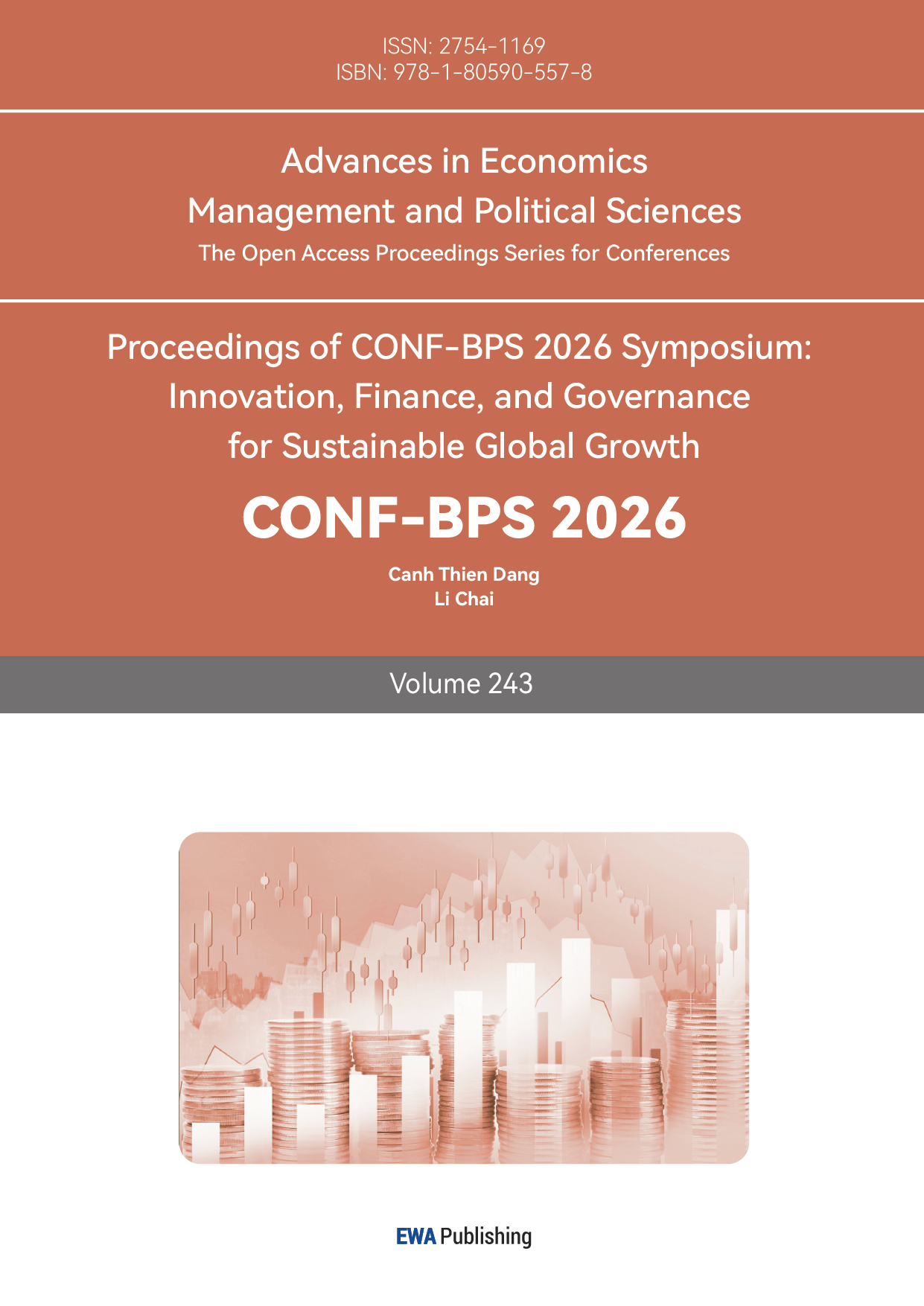References
[1]. Maganioti, A.E., Chrissanthi, H.D., Charalabos, P.C., Andreas, R.D., George, P.N. and Christos, C.N. (2010) Cointegration of Event-Related Potential (ERP) Signals in Experiments with Different Electromagnetic Field (EMF) Conditions. Health, 2, 400-406.
[2]. Liu, J. C. & Mao, L. E. (2025) A Study on the Influence Mechanism of Investor Sentiment on Stock Market Volatility From the Perspective of Behavioral Finance. China Collective Economy, 23, 105-108.
[3]. Ruan, J. Q. (2023) An Analysis of Individual Investor Behavior in the Stock Market From the Perspective of Behavioral Finance. Market Weekly, 36, 144-147.
[4]. Wang, N. (2022) A Study on the Impact of Investor Sentiment on Stock Prices (Master's thesis, University of International Business and Economics), 16, 32-55.
[5]. Ma, H. (2022) The Impact of Institutional Investor Behavior on Stock Market Volatility (Master's thesis, Lanzhou University of Finance and Economics), 22, 44-48.
[6]. Application of Behavioral Finance Analysis of Individual and Institutional Investors in Investor Education (2022) Proceedings of the High-Quality Development of China's Securities Industry, 66, 446-454.
[7]. Lin, Z. Y., Zhu, H. Q. & Xie, Z. H. (2025) Investor Risk Perception and Cross-Sectional Stock Returns: An Analysis Based on China's Securities Market. Systems Science and Mathematics, 10, 1-23.
[8]. Sun, P. D. (2023) Analyst Ratings, Investor Sentiment, and the Herding Effect of Mutual Funds (Doctoral dissertation, Shanghai Academy of Social Sciences), 16, 22-26.
[9]. Li, H., Jin, X. & Hou, Y. T. (2024) A Study on the Fuzzy Multi-Objective Portfolio Problem Based on Investors' Dynamic Loss Aversion. Operations Research and Management Science, 33, 200-207.
[10]. Ying, X. (2023) An Empirical Study on Investor Overconfidence and Excessive Trading (Master's thesis, University of International Business and Economics), 32, 66-70.
[11]. Li, J. S. & Xiong, X. L. (2024) Major Public Health Emergencies, Investor Behavior, and the Price Discovery Function of Corn Futures: A Case Study of the COVID-19 Pandemic. Jiangsu Business Review 7, 12-17.
[12]. Dai, C. Z. (2024) The Impact of Public Health Emergencies on China's Stock Market (Master's thesis, Shandong University of Technology), 12, 45-60.
[13]. Du, R. L. (2025) The Logic Behind Bond Market Ups and Downs From the Perspective of Investor Psychology and Behavior. China Money Market 3, 45-50.
[14]. Zhang, M. Y. (2022) A Review of Overreaction and Underreaction in the Stock Market. Business Economy 11, 182-184.



